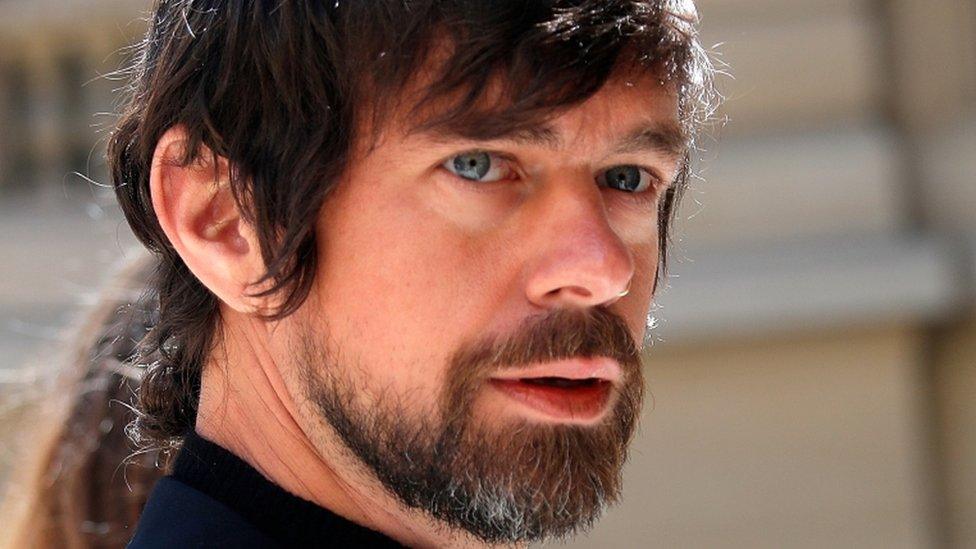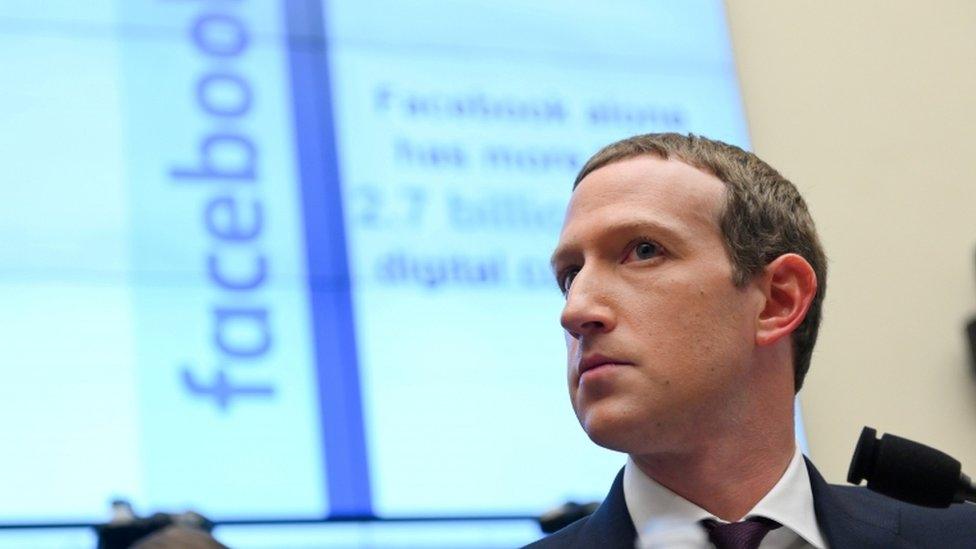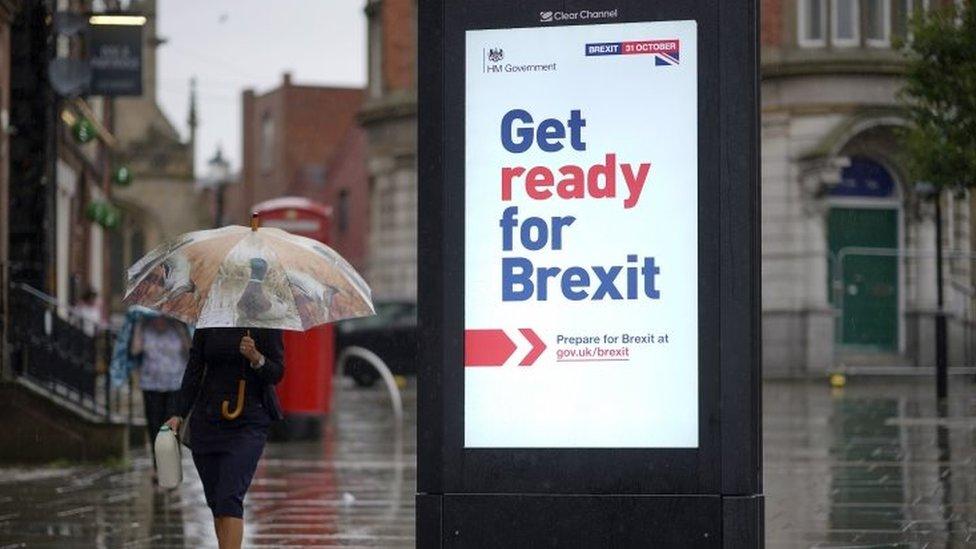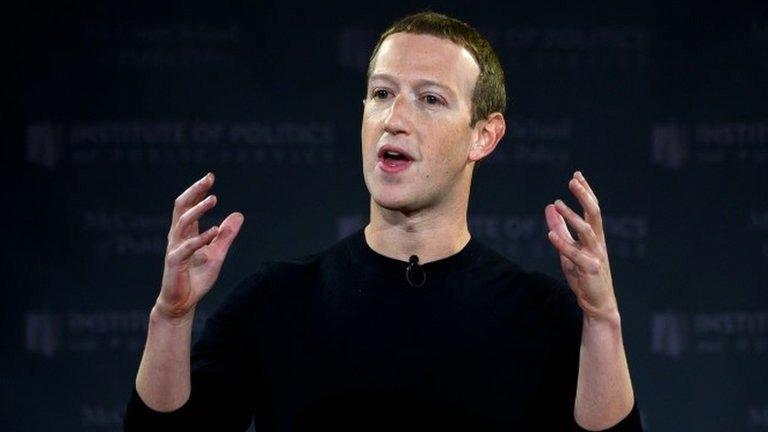Tech Tent: Twitter bans political adverts
- Published

Mr Dorsey spelled out the Twitter policy on political ads in a series of tweets
This week Twitter's Jack Dorsey made the power of social media firms to swing elections a hot topic again, with a promise to banish all political ads from his platform.
On Tech Tent we explore whether Facebook will now be forced to follow suit.

Stream or download, external the latest Tech Tent podcast
Listen live every Friday at 14:00 GMT on the BBC World Service
Mr Dorsey's intervention in a fusillade of tweets could hardly have been timed better to embarrass his much mightier rival. It came just hours before Facebook's Mark Zuckerberg spoke to analysts on a conference call about another stunning set of financial results.
"We believe political message reach should be earned, not bought," declared Mr Dorsey, external, going on to explain what he saw as the dangers presented by online political advertising: "Machine learning-based optimisation of messaging and micro-targeting, unchecked misleading information, and deep fakes."
But then in a clear swipe at Facebook he unleashed this: "It's not credible for us to say, 'We're working hard to stop people from gaming our systems to spread misleading info, but if someone pays us to target and force people to see their political ad… well... they can say whatever they want!'"
Facebook has, of course, excluded political ads from its efforts to at least label misinformation, a policy which has seen it come under sustained fire from Democrat politicians alleging that this opens the door to a campaign of lies from their opponents.

Facebook boss Mark Zuckerberg was quizzed by US politicians about the way it operates
On his conference call about Facebook's latest results Mark Zuckerberg insisted the policy wasn't about making money - political ads accounted for only 0.5% of the social media giant's revenues - but about a reluctance to act as a censor of political speech. "I can assure you that from a business perspective, the controversy this creates far outweighs the very small percentage of our business that these political ads make up," he said.
What is clear is that political parties would be far more reluctant to lose Facebook than Twitter as a platform for their paid messages.
Alex Balfour, a marketing consultant who advises major sporting organisations on the use of Facebook to promote their messages, tells us just how effective it can be: "There are potentially over 30,000 interests that you can target on Facebook and Instagram, things such as their interest in dogs or in a football team, whether you've travelled recently, whether you have a friend who has a birthday."
He added: "So you can get very granular and you can also identify people by age by sex, and by very specific location."

The UK government has run lots of ads about preparing for Brexit
After the controversy surrounding its role in the 2016 US presidential election and in the UK's EU referendum, Facebook has made some moves to make political advertising on its platform more transparent. Adverts have to have clear labelling showing who has paid for them and the Facebook Ad Library, external allows anyone to inspect every ad that has run on the platform, and the total spending of every organisation.
Over the last week, for instance, the leading spender in the UK has been the government which invested £192,753 in adverts between the 22 and 28 October. All that spending was on the Get Ready for Brexit campaign.
But Alex Balfour points out that the transparency only goes so far.
While Facebook provides a very rough snapshot of the age and location of who has seen an ad, there is no information on how they were targeted: "I think the bit that's concerning, is that it's easy to micro-target voters using criteria that are not clear with very specific messages, which may not tell the whole story of what a campaign is trying to achieve."
Facebook shows no sign of wanting to follow Twitter's lead in banishing paid political ads. As the UK general election campaign gets underway, the social media platform is bound to be a vital campaigning arena, indeed it is likely to be the principal focus for party spending.
That means it will be vital to know just who is being targeted with which ads - so if you receive any in your Facebook feed over the coming weeks, do let us know! Email election.ads@bbc.co.uk, external
Stream or download, external the latest Tech Tent podcast
Listen live every Friday at 14:00 GMT on the BBC World Service
- Published28 October 2019

- Published17 October 2019

- Published31 October 2019

